If you've ever found yourself in the position of needing to provide a reference check feedback, you know how pivotal that moment can be for someone's career. Crafting the perfect letter is essential, as it not only reflects your impressions but also can significantly influence hiring decisions. Whether you're a former employer or a colleague, your insights can help paint a comprehensive picture of the candidate. Ready to dive into tips and examples for writing a reference check feedback letter?

Subject Line
Subject line: Reference Check Feedback for [Candidate's Name]
Introduction
A reference check feedback introduction should provide a clear and concise summary of the candidate, including their previous roles, skills, and notable achievements within specific contexts. For example, the introduction might mention the candidate's experience as a project manager at XYZ Corporation, where they successfully led a team of 10 on a $2 million project that improved operational efficiency by 30%. Additionally, it could highlight their proficiency in Agile methodologies, demonstrated through multiple successfully completed sprints, and their ability to foster a collaborative environment among diverse team members. Highlighting all these elements sets the tone for the detailed assessment that follows.
Candidate's Information
When conducting reference checks for job candidates, it's vital to gather comprehensive feedback to assess their qualifications thoroughly. Candidate's information typically includes their full name, contact details, and the specific position they applied for in the company, such as Software Engineer. Gathering feedback involves reaching out to previous employers or professional contacts, noting their roles and how long they worked with the candidate. Key areas of feedback should encompass the candidate's skills, work ethic, teamwork capability, and areas of expertise, such as coding proficiency in Python or project management experience. Notes related to specific projects the candidate contributed to, such as a successful launch of a mobile application or improvements in team productivity, can provide valuable insights into their potential fit for the role being considered. This structured approach to collecting candidate information ensures informed hiring decisions.
Performance Assessment
Performance assessments play a crucial role in evaluating employee effectiveness across various dimensions. Key metrics often include productivity (measurable output per time), teamwork (collaboration with colleagues), and adaptability (flexibility in changing situations). For instance, an employee consistently exceeding quarterly targets by 20% demonstrates exceptional productivity, while contributions to team projects showcase strong teamwork capabilities. Additionally, an employee's response to unexpected challenges, such as successfully managing a high-profile project under tight deadlines, reflects excellent adaptability. Providing specific examples and detailed feedback fosters a comprehensive evaluation of performance and areas for improvement, ultimately supporting professional growth and organizational success.
Conclusion and Contact Information
In reference check feedback, it is crucial to summarize the evaluator's insights on the candidate's professional capabilities and interpersonal skills. Key elements include performance metrics such as project completion rates and teamwork efficiency, alongside specific examples from the candidate's previous roles. Highlight the evaluator's willingness to endorse the candidate based on observed work ethic and contributions to past organizations. Finally, include contact information for the evaluator, specifying organization name, position title, phone number, and email address, ensuring that potential employers can reach out for additional questions or clarifications regarding the candidate's qualifications.

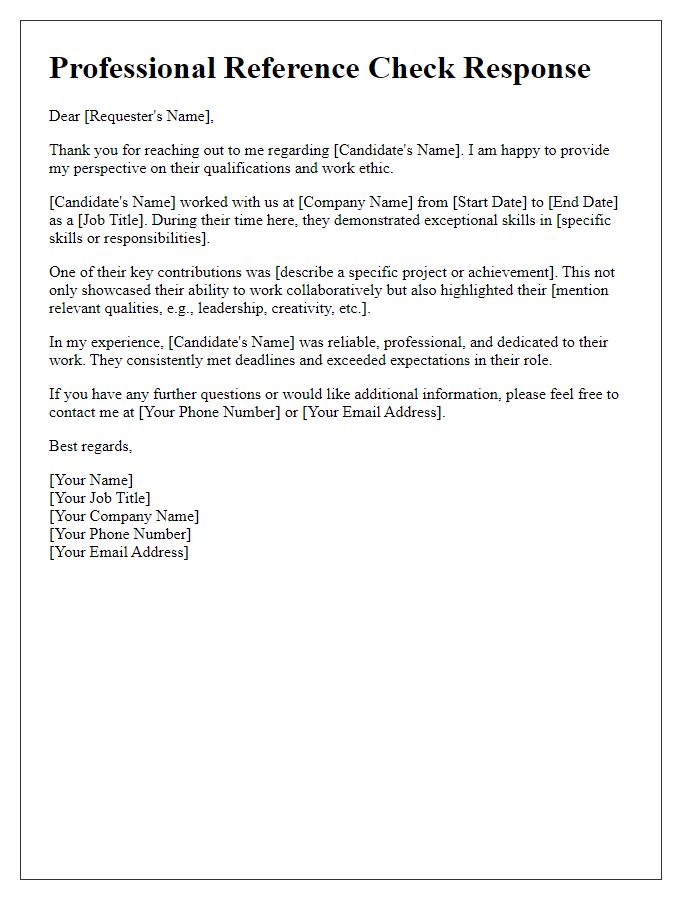
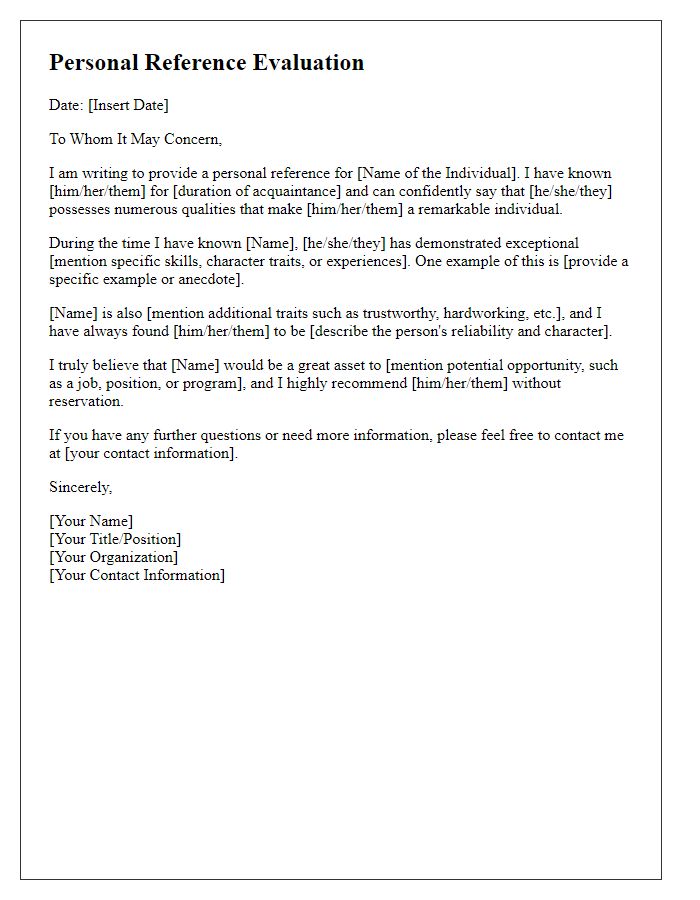
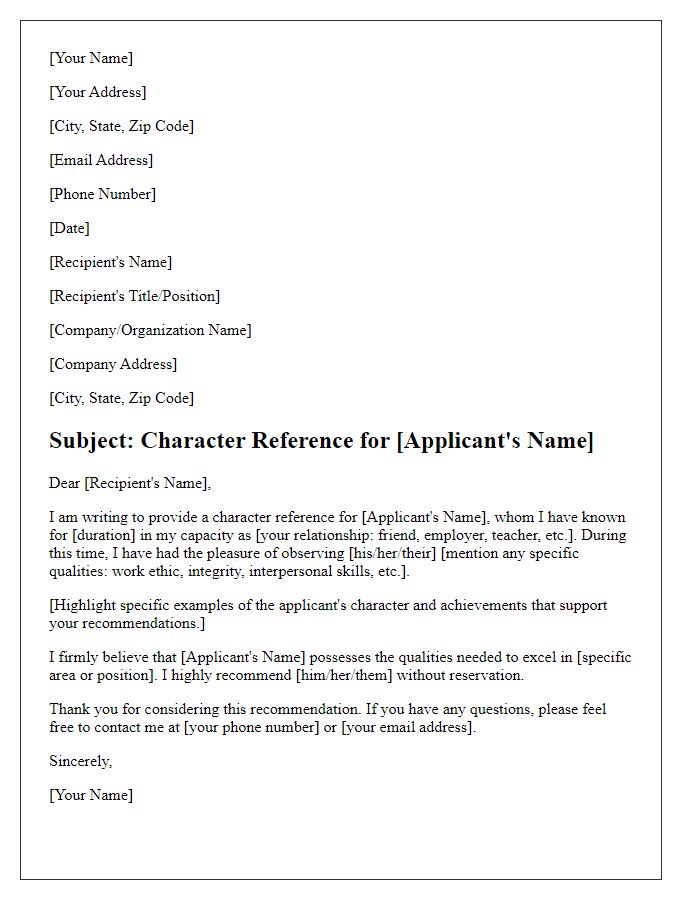
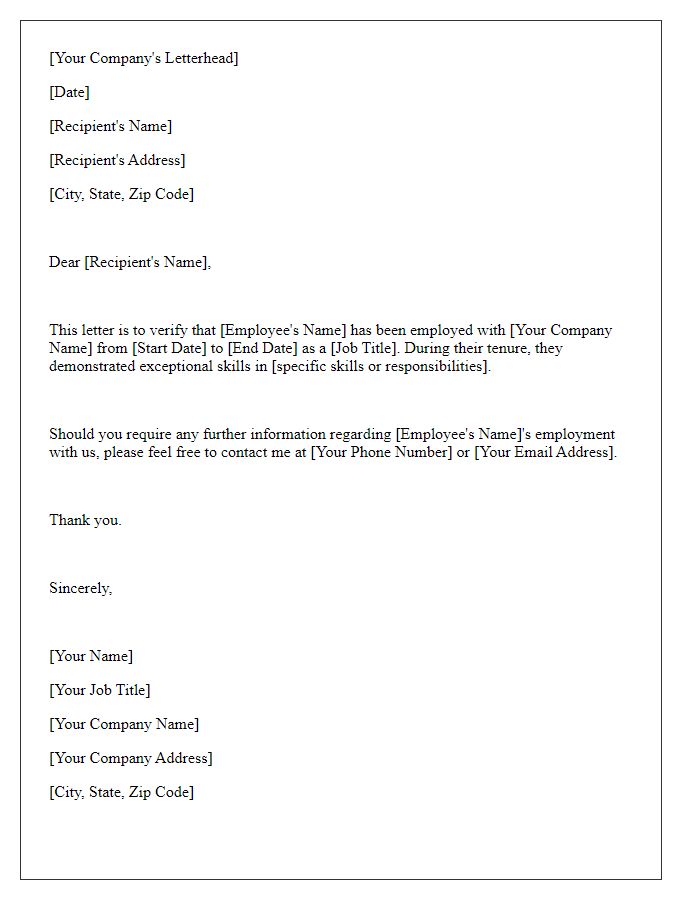
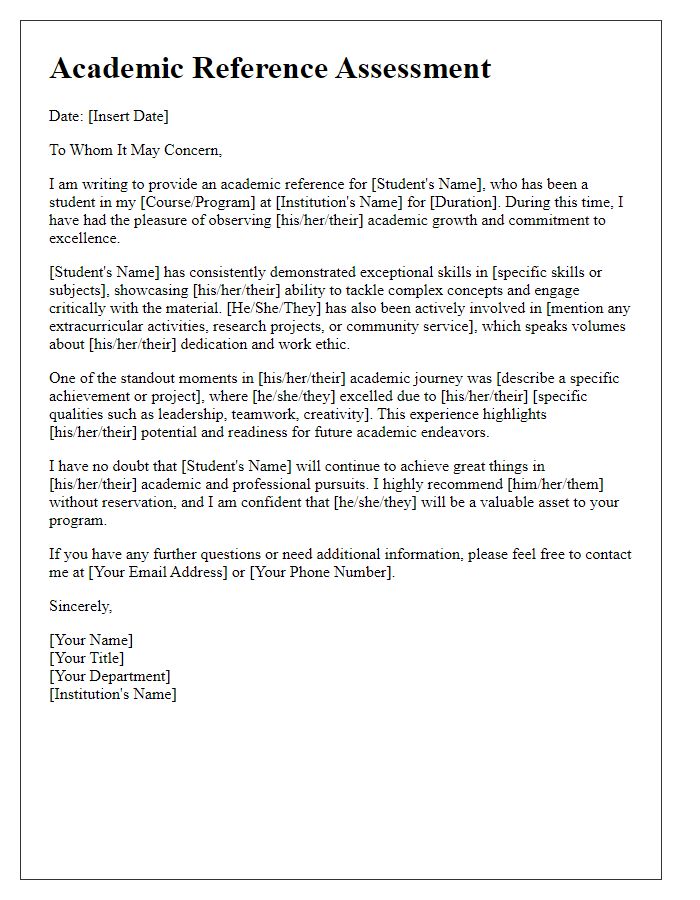
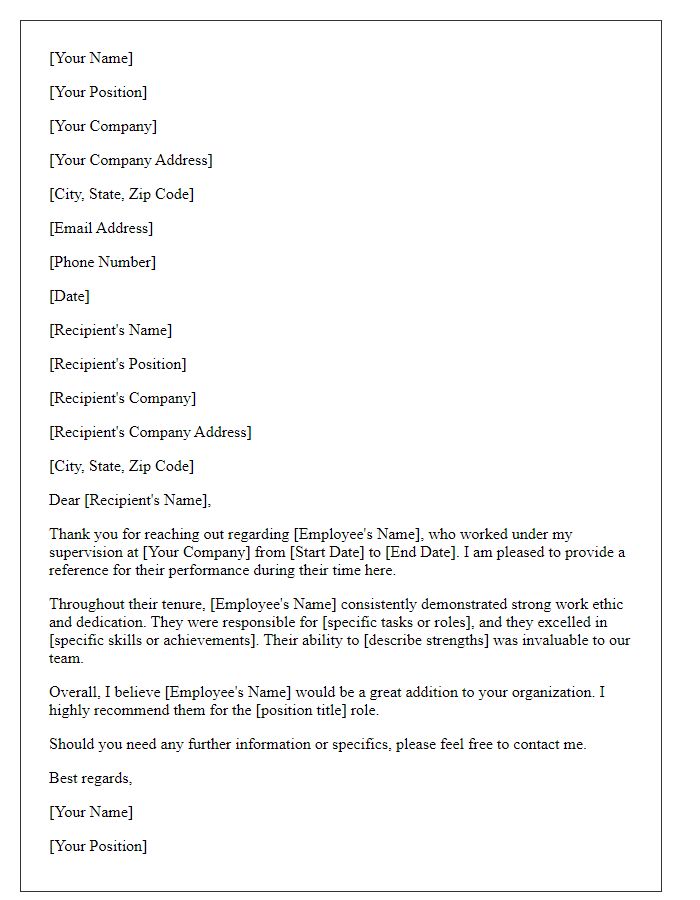
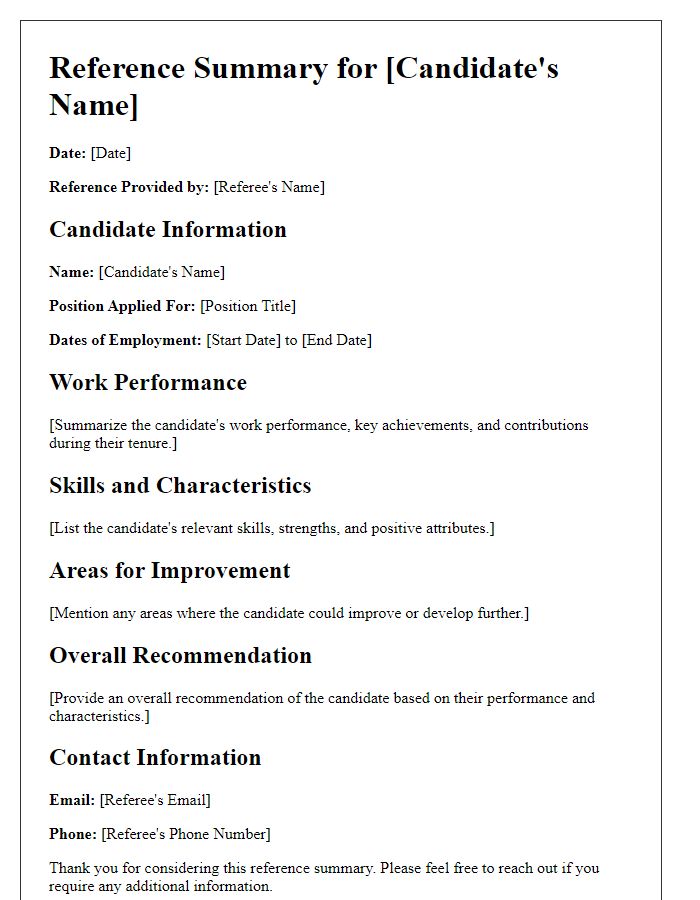
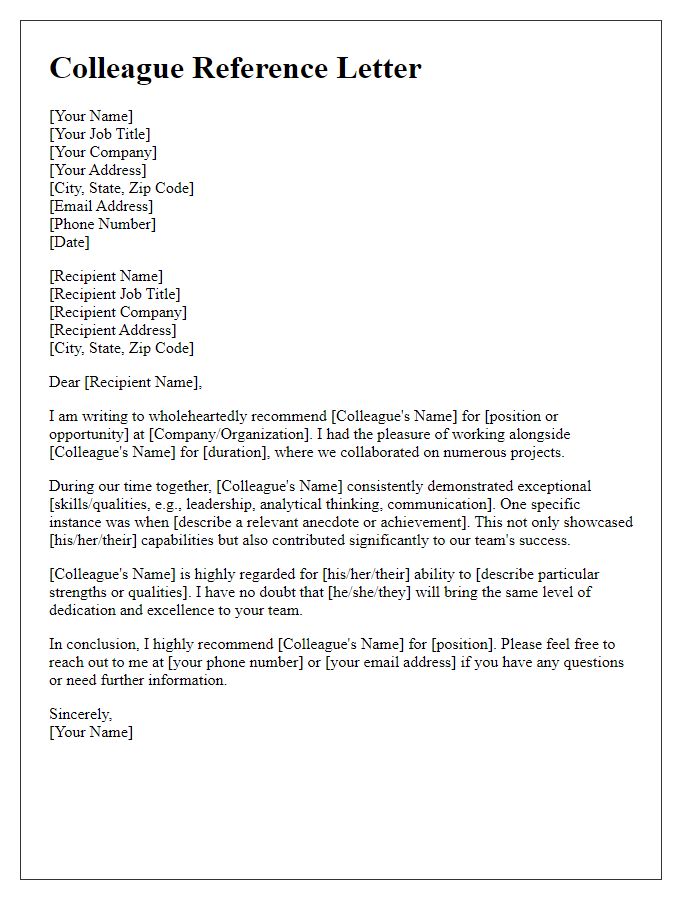
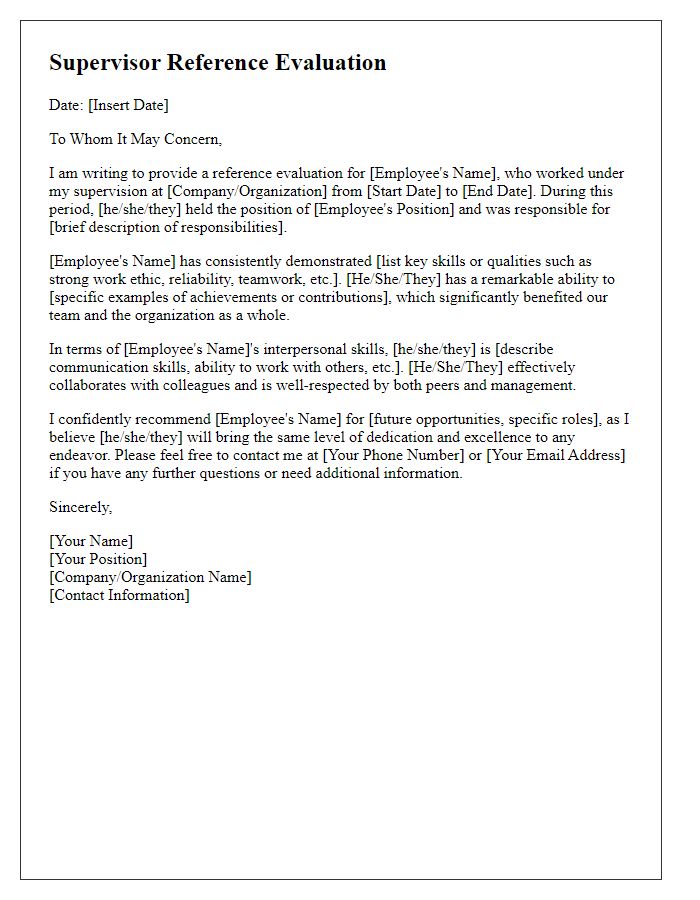
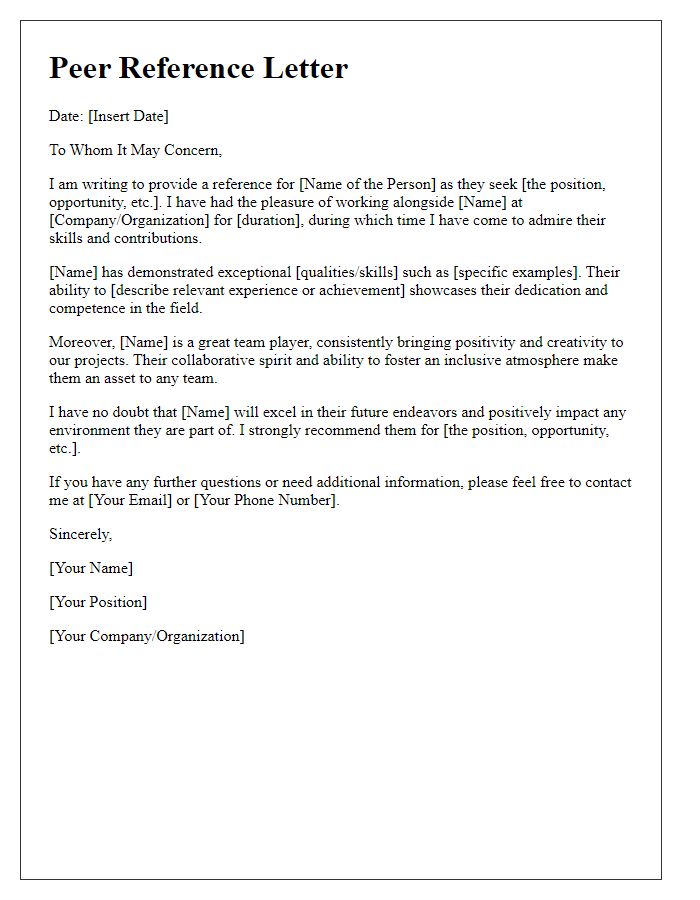

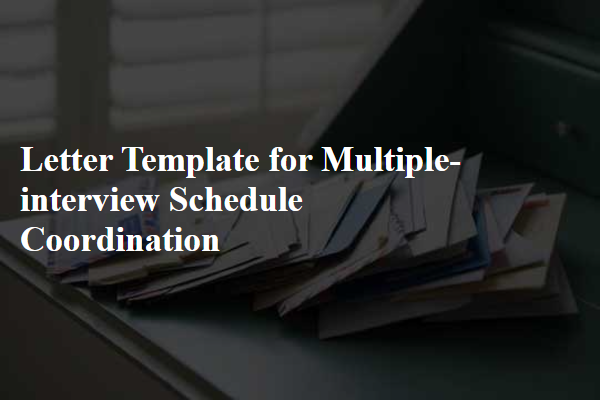
Comments